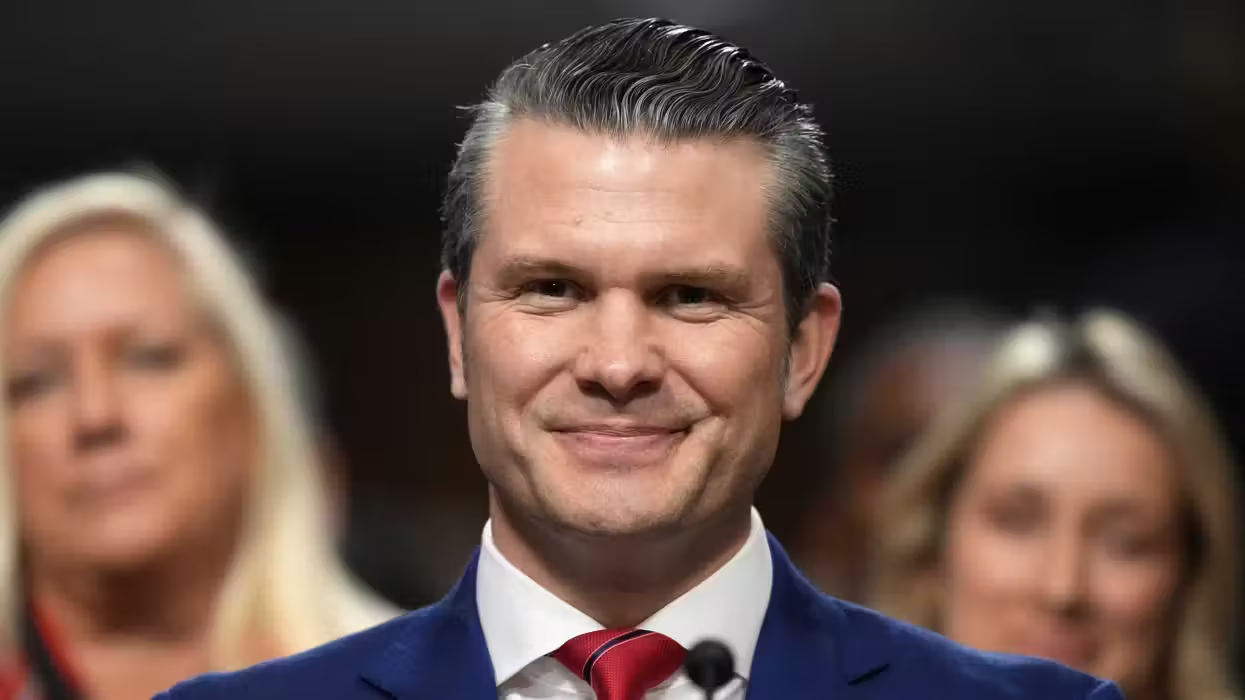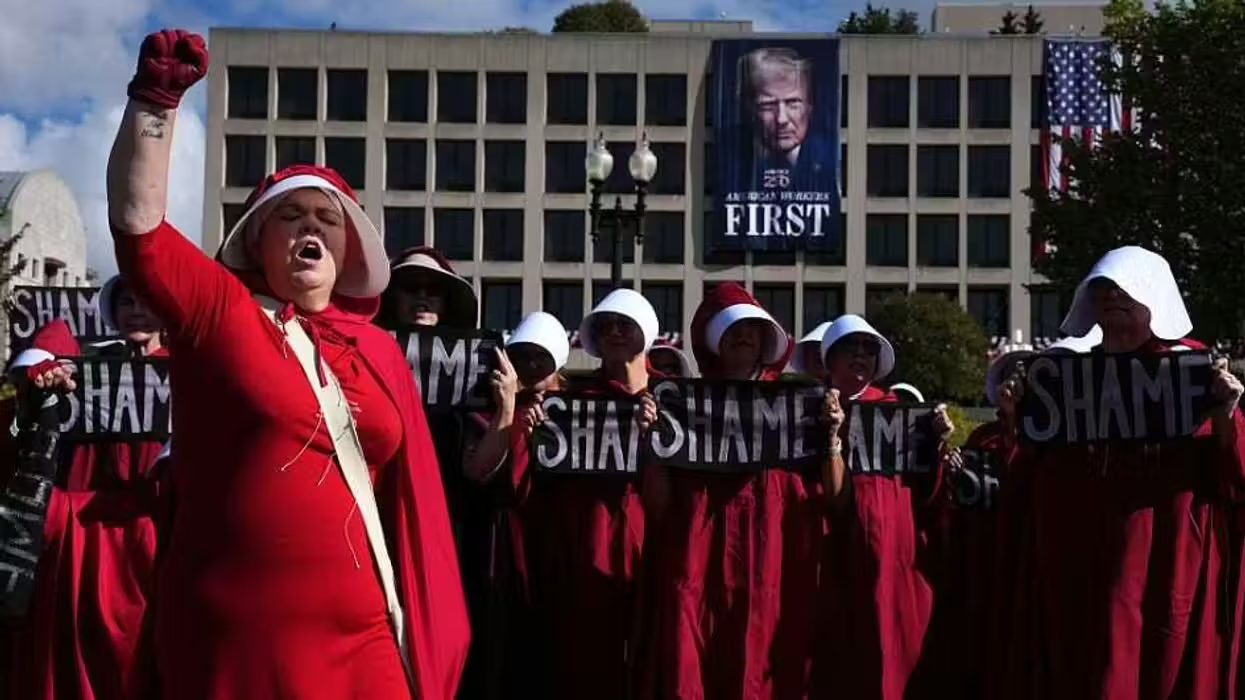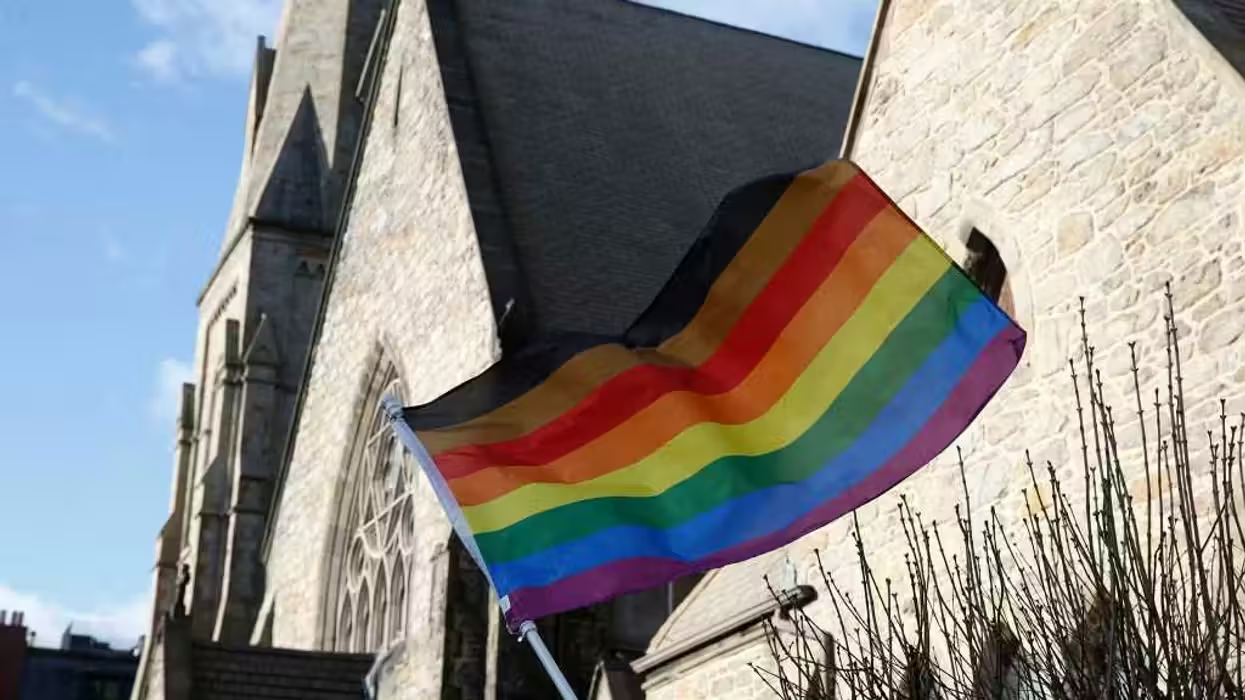UNITED NATIONS (AP) -- The U.N. Security Council unanimously adopted a resolution Friday aimed at identifying those responsible for using chlorine and other chemical weapons in attacks in Syria that have killed and injured a growing number of civilians over the past two years.
While Russia and the United States have failed to agree on a way to end the Syrian conflict, now in its fifth year, they have agreed on eliminating the country's chemical weapons.
The resolution fills a gap in assigning blame for the chemical weapons attacks in Syria so that the perpetrators can be brought to justice.
 Syrian American protesters gather outside the U.S Capitol urging Congress to support U.S. President Barack Obama in striking Syria for using chemical weapons against its own people September 9, 2013 in Washington, DC. Obama is scheduled to address the nation on the issue tomorrow night, with votes in the Senate and House likely to take place later this week. (Credit: Win McNamee/Getty Images)
Syrian American protesters gather outside the U.S Capitol urging Congress to support U.S. President Barack Obama in striking Syria for using chemical weapons against its own people September 9, 2013 in Washington, DC. Obama is scheduled to address the nation on the issue tomorrow night, with votes in the Senate and House likely to take place later this week. (Credit: Win McNamee/Getty Images)
A chemical weapon attack on a Damascus suburb killed hundreds of civilians on Aug. 21, 2013. There have been numerous reports of continuing use of chemicals as weapons in Syria, especially chlorine-filled barrel bombs, since then.
"Pointing a finger matters," U.S. Ambassador Samantha Power told the council after the vote, praising members for taking "another step aimed at stopping the use of chemical weapons in Syria."
The Organization for the Prohibition of Chemical Weapons, the global chemical weapons watchdog, has a mandate to carry out fact-finding missions to determine whether chemical attacks occurred in Syria. But neither the organization nor the United Nations has a mandate to determine responsibility.
The resolution asks U.N. Secretary-General Ban Ki-moon, in coordination with OPCW, to submit recommendations to establish a joint investigative mechanism.
The investigative body would identify those who are "perpetrators, organizers, sponsors or otherwise involved in the use of chemicals as weapons, including chlorine or any other toxic chemical" in Syria, in instances where an OPCW fact-finding mission determines that an incident involved, or likely involved, their use.
In March, the council approved a U.S.-drafted resolution that threatens measures, including sanctions, over the use of toxic chemicals as weapons in Syria.
Friday's vote comes just two days after U.S. Secretary of State John Kerry and Russian Foreign Minister Sergey Lavrov reached agreement on the final text of the document. None of the 13 other council members raised objections.
The United States has been pressing for the council to ensure accountability for the growing number of alleged chlorine attacks in Syria, many reportedly using barrel bombs dropped from helicopters.
The U.S. sponsored an informal Security Council meeting in April for council members to hear first-hand accounts of chemical weapons attacks. In early June, Syrian activists and doctors said chlorine had been increasingly used as a weapon. And in mid-July reports emerged that the Islamic State group, which controls about a third of Syria and Iraq, used projectile-delivered poison gas against Kurdish forces in both countries on several occasions in June.
Syria's declared stockpile of 1,300 metric tons of chemicals has been destroyed, but the OPCW is investigating possible undeclared chemical weapons.
Chlorine is not officially considered a warfare agent and was not among the chemicals declared by Syria, but its use as a weapon is illegal.

 Syrian American protesters gather outside the U.S Capitol urging Congress to support U.S. President Barack Obama in striking Syria for using chemical weapons against its own people September 9, 2013 in Washington, DC. Obama is scheduled to address the nation on the issue tomorrow night, with votes in the Senate and House likely to take place later this week. (Credit: Win McNamee/Getty Images)
Syrian American protesters gather outside the U.S Capitol urging Congress to support U.S. President Barack Obama in striking Syria for using chemical weapons against its own people September 9, 2013 in Washington, DC. Obama is scheduled to address the nation on the issue tomorrow night, with votes in the Senate and House likely to take place later this week. (Credit: Win McNamee/Getty Images)






